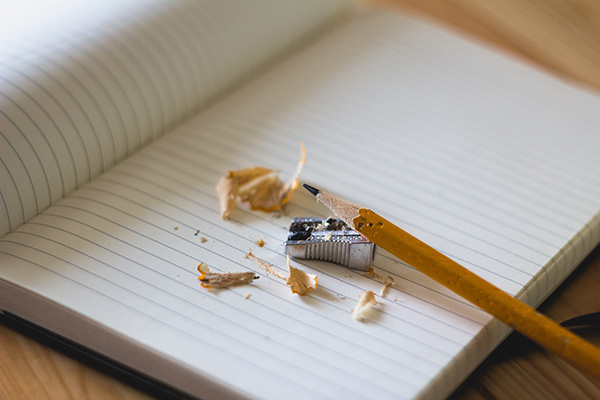 Back in 1823, a French Romantic artist named Eugene Delacroix wrote: “Nothing is better than having some small task to perform every day. Even one task fulfilled at regular intervals in a man’s life can bring order into his life as a whole; everything else hinges upon it. By keeping a record of my experiences I live my life twice over. The past returns to me. The future is always with me.”
Back in 1823, a French Romantic artist named Eugene Delacroix wrote: “Nothing is better than having some small task to perform every day. Even one task fulfilled at regular intervals in a man’s life can bring order into his life as a whole; everything else hinges upon it. By keeping a record of my experiences I live my life twice over. The past returns to me. The future is always with me.”
This “one, small task” Mr. Delacroix was discussing was the art of keeping a journal. He would go on to fill nearly twenty notebooks over the course of his life with everything from the everyday mundane to his highest achievements. Throughout his life he discussed the clarity and renewed sense of creativity it brought him. Even hundreds of years ago, he was on to something that would prove very relevant for the “pretiree” and other working professionals…
In 2016, most of the time, you flex your writing skills for other people. You carefully craft an email to your boss. You handwrite a birthday card to your coworker. You draft a motivational pep talk to share on your next conference call. You’re sending quick, one-sentence snippets into the ether.
In this day-to-day communication, we usually tend to employ a filter. It’s an important filter – one that can keep us out of trouble. But regardless of how essential the filter may be, it still leaves breadcrumbs in your mind that can roll around and fester. Some may adopt the Frozen approach to “Let it Go.” Others, however, may find value in following those breadcrumbs through pages of a journal.
While we usually rely on other people to provide us with some perspective, oftentimes journaling can be a methodical process that creates the same resolution. Some journal advocates even describe it as “free therapy.” Journaling can be your place to unravel the minutiae of those day-to-day interactions: What did I learn from this? What do I wish I had said differently? What do I wish my filter had let through? How can I approach a similar situation differently next time?
Even though you’ll still chip away at those work emails, birthday cards, etc., consider capitalizing on that rare occasion when you can write for yourself. Time and time again it’s been proven that keeping a journal can be essential to personal development and self-understanding.
Have you ever kept a journal? What is your journaling style?
Note: Delacroix’s journal entries are preserved in The Journal of Eugene Delacroix


0 Comments